What Is A Rosin Press?
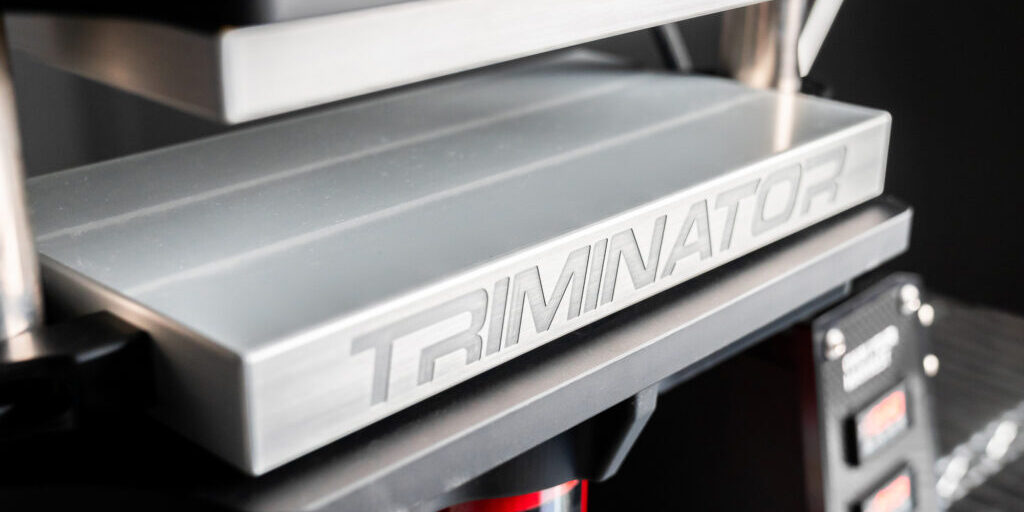
Whether you’re a professional working in the cannabis space interested in learning more about the rosin pressing process, or an entrepreneur interested in starting your own cannabis concentrate business, it’s vital you make informed decisions about a rosin press as a potential investment for your commercial operation.
The popularity of cannabis concentrates has exploded in the past few years. In 2020, concentrate sales were up 40%. By 2022, the estimated global market value of cannabis concentrates reached $1.7 billion. Experts believe that by 2027, the concentrate market will be worth close to $4 billion.
Rosin is one of the most popular concentrates on the market. Created without solvents with a rosin press machine, rosin is a solventless cannabis concentrate praised amongst cannabis connoisseurs for its purity and potency. Here we’ll take a deeper look at rosin and rosin presses for those interested in producing large quantities of high-quality rosin products for commercial purposes.
A Brief History of Rosin
Solventless extracts like rosin are relatively new, but the use of concentrates dates back centuries. While the origin of hash is not exact, it has been thought to be used as early as 4000 BCE., and traditional hash-making practices are still used today in some parts of the Middle East.
It wasn’t until the 1990s that hash-making practices began to evolve and become more popular in the West. Modern butane hash oil (BHO) appeared on the US market in the late 1970s, and was known as “butane honey oil” or just “honey oil.” In the 1990s, hash-making practices began to evolve and bubble hash became a popular product and newer method of making hash.
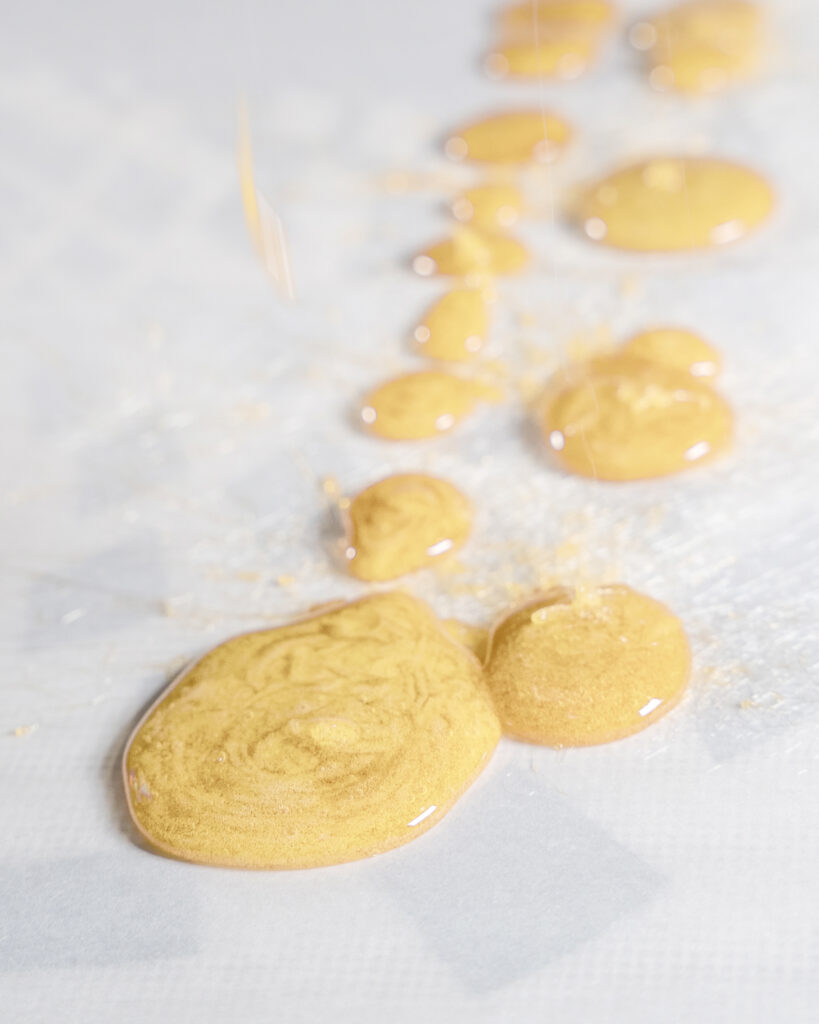
Rosin was discovered accidentally in 2015 by California cannabis grower Phil “Soilgrown” Salazar in an attempt to thin out no-melt hash with a hair straightener. When information about rosin hit the mainstream market in 2017, interest in rosin increased exponentially and the first rosin press machine soon hit the market.
Rosin press technology has evolved rampantly since the first rosin was created with a hair straightener in 2015. Solventless extracts like rosin have become a popular alternative to traditional extracts made with solvents like butane. For entrepreneurs or individuals interested in commercial rosin production, knowing all you can about purchasing a high-quality rosin press is key.
How Rosin Presses Work
A rosin press is one of the easiest ways to create pure, potent cannabis concentrates. A rosin press uses nothing but heat and pressure to extract cannabinoids and terpenes from raw plant material.
At the most basic level, a rosin press uses heated plates to squeeze the oils out of the plant material into a highly potent extract. These heated plates are pressed together using tons of force, which separates cannabinoids and terpenes from the plant material into a sticky, resinous sap that is pushed out of the plates and collected onto parchment paper.
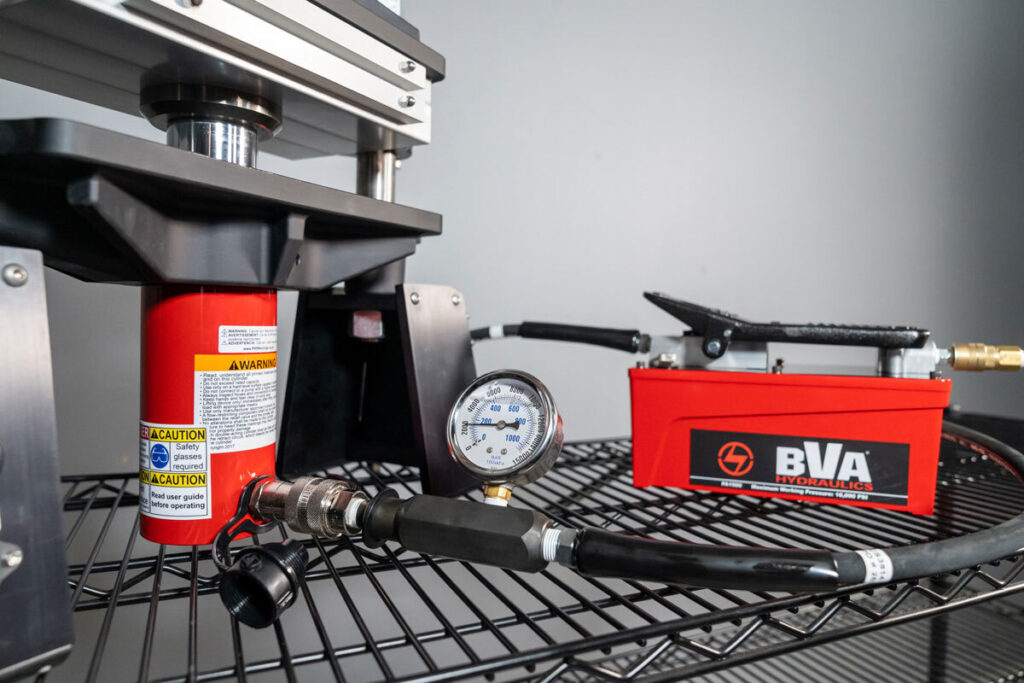
In addition to the manual press, there are two other main types – hydraulic presses and pneumatic presses. Triminator offers two rosin presses for extraction professionals: the Rosin TRP and the TRP Stack, which can both be paired with either a manual or hydraulic pump depending on the operator’s preference. Triminator’s Rosin Presses deliver maximum pressing efficiency with large platens and the industrial grade power frame. With individual PID temperature controls, you can press rosin at precise, lower temperatures with higher pressure to deliver the purest and most potent extract.
Manual Rosin Press
A manual rosin press is operated by hand, using pump or twist devices that are user-operated to apply the ideal amount of pressure. Manual rosin presses are best for small-scale production or home rosin extraction, as opposed to larger rosin presses commonly used in commercial extraction processes.
Because it’s manually operated, a manual rosin press doesn’t require any excess equipment like an air compressor or external pump in order to operate.
Manual Press Pros & Cons
Pros
- Excellent for small-scale rosin production
- Portable and simple to use
- Less expensive than other types of rosin presses
Cons
- Not ideal for extracting rosin at a commercial scale
- Require physical effort from the user
Hydraulic Rosin Press
Hydraulic rosin presses use a hydraulic cylinder to create the force necessary to press raw cannabis matter into concentrated rosin. Hydraulic rosin presses are popular with commercial extractors for applying the right amount of pressure when working with large amounts of plant material to achieve high yields. By pressing with higher pressure and a lower temperature, terpene content maintains its value.
Some hydraulic rosin presses are power-driven by using a hand crank, which applies pressure to the heated plates. Other hydraulic rosin presses are powered using an external pump to power the internal hydraulic cylinder. In this case, external pumps are typically powered by an air compressor or some type of electric control system.
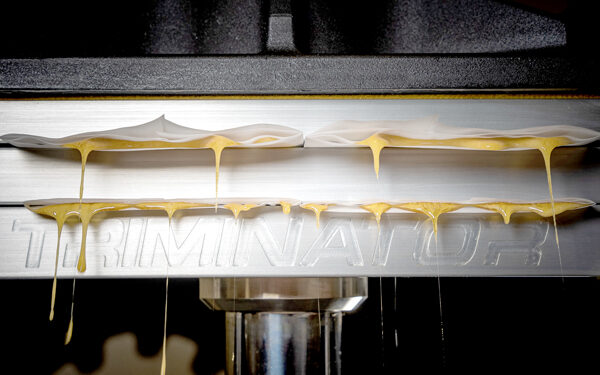
Hydraulic Press Pros and Cons
Pros
- Typically easier to use than manual presses
- Can be customized with various pumps for maximum versatility
- Can be used for extracting rosin at a commercial scale
Cons
- Require manual operation and precision from the user
- More expensive than manual rosin presses
Benefits of Using a Rosin Press
Although rosin is a relatively new cannabis concentrate, it’s quickly become one of the most popular products on the market.
Compared to other extraction methods that can lead to concentrates that contain residual solvents and other contaminants, a solventless rosin press offers one of the purest cannabis concentrates on the market. Rosin is free from any residual solvents and other contaminants and is sometimes referred to as solventless hash oil (SHO) because it’s made using only heat and pressure.
While the purity and potency of rosin depend on the quality of the plant material, rosin is revered by health-conscious cannabis consumers because of its unparalleled purity. With high-quality flower and zero solvents used in its production, the rosin press will produce the most potent, purest, and unadulterated extracts available on the market.
The purity and potency of high-quality rosin most often demand a higher price point. Premium rosin made with the finest flower sells for a higher price on the retail market than other concentrates of similar quality. Because the purity of quality rosin is unsurpassed, discerning cannabis consumers are willing to pay the extra price.
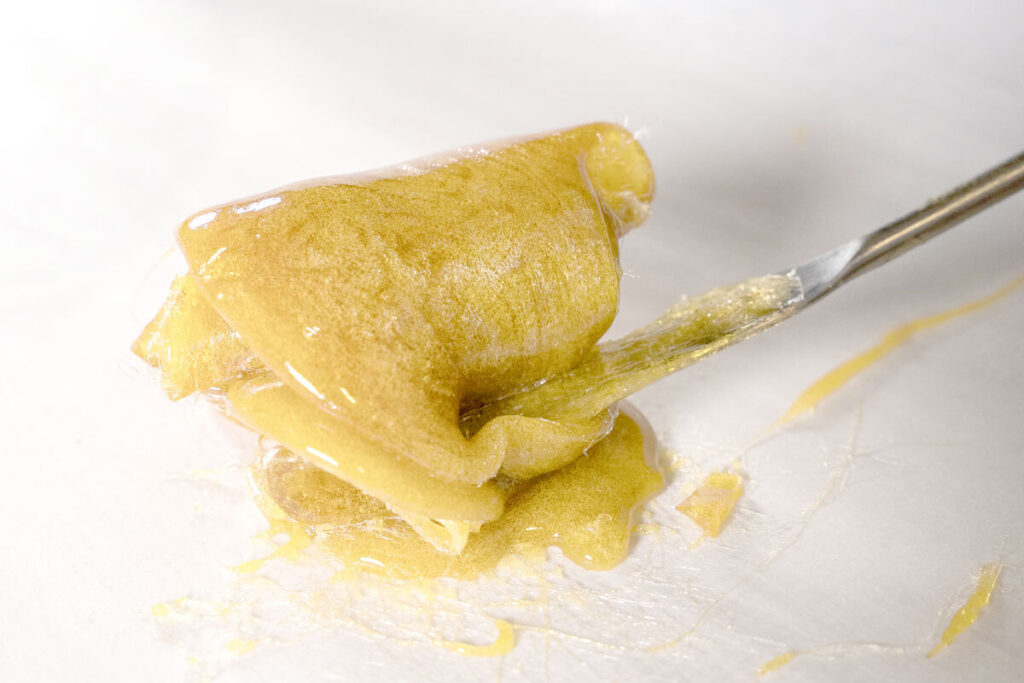
Another benefit of rosin is its versatility. With the right rosin press, you can manipulate the timing and temperature of your extraction. This means that with a few modifications to the rosin press settings, you can create rosin in the consistency of other concentrates like wax, shatter, budder, crumble, and others.
There are also several ways rosin can be used. The most common are smoking or vaping, but it can be used to make edibles as well. While it’s typically dabbed or used in a vape pen, rosin can also be added to flower in the bowl of a pipe or bong. It can also be added to flower in a joint or blunt. In either case, the rosin heats up with the flower when the bowl or joint is ignited.
Individuals interested in starting their own concentrate business or producing large quantities of high-quality concentrates will find a rosin press is one of the best investments they can make to achieve success in the cannabis concentrate market.
Best Strains For Pressing Rosin
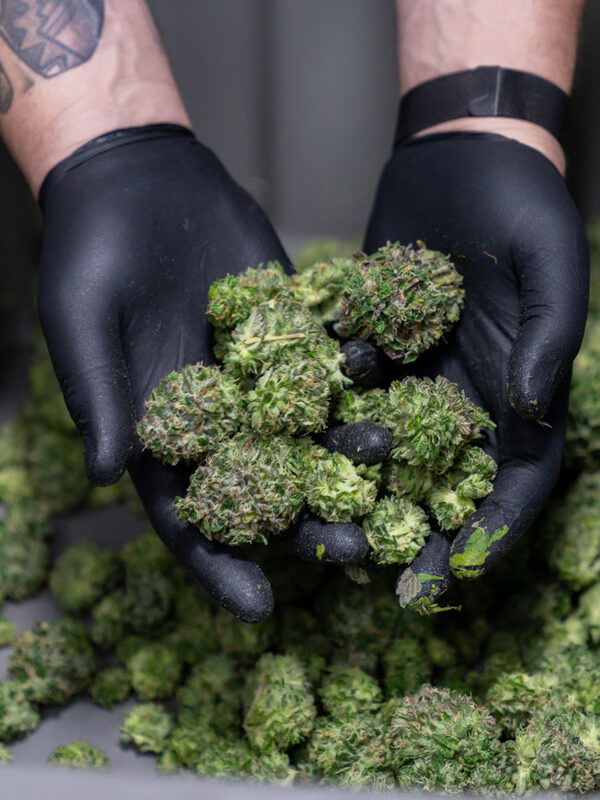
While having high-quality equipment, such as Triminator’s Rosin TRP or TRP Stack, is crucial for extracting high-quality rosin, there are certain strains that can increase how much rosin you yield.
While you can use any cannabis strain in a rosin press, some strains will offer a higher quality product and larger yield. Also, keep in mind that the quality of your rosin is directly dependent on the quality of your starting material.
The best strains for pressing rosin are those that produce massive amounts of trichomes. The more resinous the strain you press, the more rosin you’ll yield. Some of the best strains for attaining high rosin yields include:
- Chem Dawg
- Gorilla Glue #4 (GG4)
- Hash Plant
- Papaya
- Sour Diesel and other sour strains
If you’re interested in optimizing your rosin production, these are some of the best strains to consider. It’s recommended to experiment with pressing different strains to determine what works for you and your operation.
Final Thoughts On Rosin Presses
As the demand for concentrates made without chemicals continues to increase among health-conscious consumers and cannabis connoisseurs, rosin continues to be one of the most popular concentrates on the market. Using nothing more than heat and pressure, a rosin press can produce one of the purest and most potent concentrates on the market in mere seconds.
Considering data from cannabis market analyst firm BDSA found the demand for solventless extracts increased approximately 132% each month in a one-year period from June 2021-June 2022, there’s never been a better time to invest in a solventless rosin press. With the future of concentrates projected to grow exponentially over the next few years, purchasing a rosin press can ensure your business continues to grow with anticipated industry trends. Interested in learning more about rosin presses or investing in a rosin press for your business or personal needs? Contact us today to see how we can help. As industry professionals with the most comprehensive range of cannabis and hemp processing equipment in the world, we want to help growers and entrepreneurs increase productivity and profitability in the rapidly evolving cannabis market.
Like what you read?
Get more insider industry knowledge sent right to your inbox
"*" indicates required fields